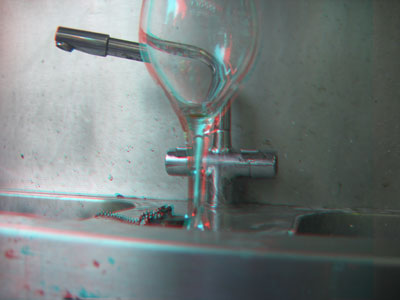Home | Workshops
I offer a range of workshops which I consider to be an extension of my art practice, demonstrating the processes and research methods behind my art work. Using art as a medium of exploring science and demonstrating scientific concepts workshops are designed to be accessible, encourage creativity through practical experiments, and adapt the observational skills & methods used in art as a route to increasing engagement in science and visa versa. Workshops have been developed with Arts
Catalyst, numerous Creative Partnerships, CARA action research
projects, CAPE UK, and NESTA. one project was runner up
in the 2007 Rolls Royce Science award. Education resources
and workshops have been developed for FACT and Tate Liverpool
with Welcome Trust, Other clients include Manchester Art
Gallery, Oldham Art Gallery and the Big Draw (Receiving
the 2010 Trail Blazer award from the Campaign for Drawing
for a project with Tate Liverpool) Using a reusable kit of components students design and make a small ultra simple 'robot', modify it for making drawings or racing. Other activities explore different forms of energy and fields, visualizing the invisible using sensors to detect the sound of electricity and solar cells to listen to the sound of different kinds of light, make induction loops and transmit sounds on magnetic fields. This workshop has been run as a drop in family activity for all ages, as well as part of a more in-depth workshop exploring the phenomenon of electricity and magnetism in which students create a simple motor from raw materials.
‘Hele-Shaw’ cells make beautiful patterns when liquids of different viscosity are injected into them. The cell is made from two flat transparent plastic plates, separated by a small space. One plate has a hole in the middle through which liquid can be injected.
Sound Lab: Pod casting, Sound physics, Sound recording, Sound visualization, Cymatics Through listening and using contact microphones to amplify sound, the sonic properties of materials are explored through experimentation. Instruments are made which harness these properties. Groups are given a basic theme percussion strings, wind etc) and core materials around which to design and make the instrument. Using various devices to visualize sound waves, sound is looked at in terms of form and shape and pattern. Domestic and Food substances are used to highlight the strange and bizarre behaviors of particles and fluid when energised by sound. Introduction to recoding sound manipulating and arranging sounds, Instrument making using found materials.
I have done a number of workshops in electronic and acoustic musical instrument making, as a way of exploring sound and design. In a recent project with Creative Partnerships intended to demystify technology, year 9 students invented wearable technologies for interacting with computers including;Techno Tap, a sensor shoe, with an optical sensor, a speaking, USB 'Sensor Glove' for controlling music, and a head band that detects your emotional state selecting music accordingly. The completed objects will be shown as part of Manchester International festival   
Slime Lab. Making slime, Bouncy Balls, Lava Lamps This set of fun tactile activities investigate polymers, creating and exploring the properties of unusual substances. The workshop involves mixing simple chemical reactions using domestic substances like milk corn flour and vinegar. Packed with hands on experimentation, participants make a collection of different gooey polymers as well as molding a shape from a milk based bio-plastic that will harden into a tough plastic.
Sonic Streams is a creative exploration of the impact of sound on the human body. Sound can powerfully affect the human body and the way we feel. Can sound aid the healing process and promote well being? Noisy and busy urban environments - schools, colleges, and hospitals, for instance, can also raise stress levels. Can we change the real life impact of environments through altering sound content? With the support of the Tool Kit, students will develop creative ways to scientifically research the effects of sound and to share their findings.
Perception Lab Is seeing believing? Our eyes can easily be tricked. Explore the phenomenon of visual perception through simple experiments using art and science. The rubber hand experiment is a classic; in this version students make a selection of different hands including a squishy dough hand and wooden hand, participants start to believe its actually attached to their bodies! This workshop content was developed through collaborations with the British science association, and Tate Liverpool’s Alice in wonderland exhibition. Over 1000 people participated during the Manchester science Festival.
 The history Stereo photography is closely linked with the development of moving image technologies. This workshop covers basics of visual perception and colours. Taking various optical illusions as a reference, the phenomenon of stereo vision is discussed in depth. Participants learn how to "free view" stereo images , make a stereo viewer, as well as construct digital red green "anaglyph" images using photoshop. We also make our own classic 3D viewing glasses to see these.
|
|||||||||||||||||||||||||||||||||||||||||||||||||||||||||||||||
Tabletop Experiments LTD Company No. 07155600























































